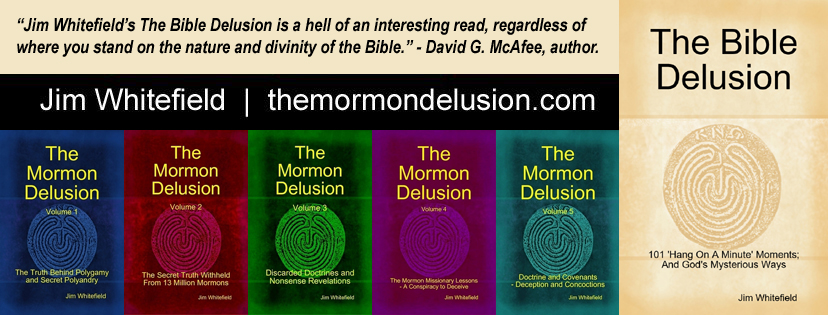The Mormon Church prides itself on ‘modern-day’ revelation. Extracts from the ‘Guidance Notes’ of TMD Vol. 5, regarding sections of the Doctrine and Covenants, suggest that such revelations were short lived and now they rely mainly on Smith’s musings – and a thorough analysis shows they pretty much amounted to nothing. (See TMD Vol. 5 for a full analysis of the D&C).
…we see a few [sections] (14) [written] in 1829, the year in which the Book of Mormon was being written. More were recorded in 1830 (20), the year when the Church was formally established, and Smith’s most prolific year was 1831 when no less than thirty-seven (and a half) of his revelations were recorded.
At the time, Smith was having some trouble retaining control of his Church. Was the Lord getting better at expressing himself, or was Smith just becoming more practiced in his ability to write, whilst pretending the Lord was the voice for his ideas? The answer to that will become clear and obvious as we journey through Smith’s ‘Covenants’.
Fewer revelations were recorded in each of the years following 1832 and in some years there were none at all. Did the Lord have less to say, or couldn’t Smith think of any more new ideas?
The Doctrine and Covenants was dictated by Joseph Smith, other than Sections 135, 136, 138 and Official Declarations 1 and 2. No other canonised revelation or prophesy given to latter-day Mormon prophets exists in Mormonism. In fact, Mormon prophet, Gordon B. Hinckley, publicly declared that the Lord doesn’t provide communication the way He used to. It now comes through ‘feelings’…
Q: And this belief in contemporary revelation and prophecy? As the prophet, tell us how that works. How do you receive divine revelation? What does it feel like?
A: Let me say first that we have a great body of revelation, the vast majority of which came from the prophet Joseph Smith. We don’t need much revelation. We need to pay more attention to the revelation we’ve already received. Now, if a problem should arise on which we don’t have an answer, we pray about it, we may fast about it, and it comes. Quietly. Usually no voice of any kind, but just a perception in the mind. I liken it to Elijah’s experience. When he sought the Lord, there was a great wind, and the Lord was not in the wind. And there was an earthquake, and the Lord was not in the earthquake. And a fire, and the Lord was not in the fire. But in a still, small voice. Now that’s the way it works. (San Francisco Chronicle. Don Lattin interview with Gordon B. Hinckley. 13 Mar 1997). (Emphasis added).
The Mormon Church always claimed a need for continuing revelation. It seems that this is no longer the case. Hinckley: “We don’t need much revelation.”
More snippets from TMD are available in the Notes section of The Mormon Delusion facebook page.

